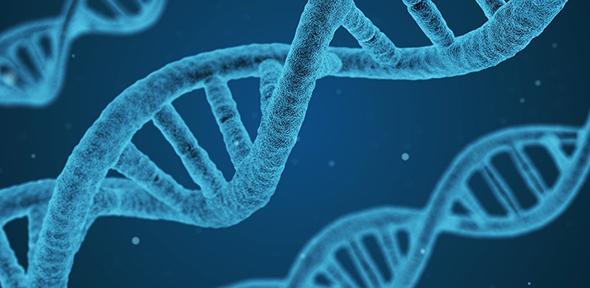
The analysis of samples from 113,000 women reveals the most important genes that increase the risk of breast cancer.
These findings will be used for breast cancer risk prediction tests and to help improve prevention programmes.
The study, led by Professor Doug Easton, Director of the Centre for Cancer Genetic Epidemiology at the University of Cambridge and member of our Early Detection Programme, has been undertaken by 250 researchers from more than 25 countries.
It is the most ambitious project carried out to date to shed light on the role of heredity in breast cancer, one of the most common cancers affecting one out of every eight women at some point in their lives.
It has been known for some time that the risk of developing breast cancer depends partly on genetic inheritance, but determining exactly which genes increase this risk, and how much, remains a major challenge.
Some genes are already known to increase cancer risk; other genes are suspected to be involved, but not to what extent.
A large international consortium, coordinated from Cambridge, has studied 34 known or suspected breast cancer susceptibility genes in DNA samples from 60,400 women diagnosed with breast cancer and 53,400 healthy women.
The results pinpoint nine genes for which there is solid evidence of their involvement in the disease: ATM, BRCA1, BRCA2, CHEK2, PALB2, BARD1, RAD51C, RAD51D and TP53.
For some of these genes, such as BRCA1 and BRCA2 this was already known, but for others, such as RAD51C and D and BARD1, their involvement was not so well established.
Prof Easton said: "Genetic testing for breast cancer risk has become an important part of clinical practice, particularly for women with a family history of the disease. This study helps to define the appropriate set of genes to be used in genetic testing."
The study has also shown that about fifteen of the genes that have been used so far in some tests “are not indicative of an increased risk” for breast cancer and should therefore not be taken into account, at least at this time, in risk estimates.
However, the authors caution that the probability of developing breast cancer is not determined by genes alone. Other risk factors such as age, hormonal history and environmental factors also play a role, which in turn are influenced by the genetic background.
"These results should help physicians and genetic counsellors to advise women on their cancer risks, and make more informed decisions about how to manage these risks," added Prof Easton.
This project is funded by the European Union’s Horizon 2020 Research and Innovation Programme (BRIDGES), the Wellcome Trust, and Cancer Research UK.
Reference:
Leila Dorling et al Breast cancer risk genes: association analysis in more than 113,000 women, NEJM, 2020.
DOI:10.1056/NEJMoa1913948
















